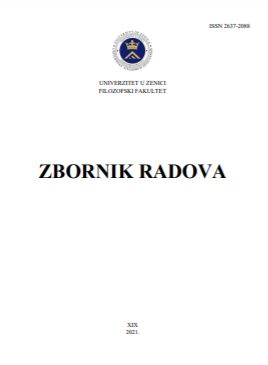TRANSNACIONALNA PERSPEKTIVA EVROPSKE KULTURNE POLITIKE
TRANSNATIONAL PERSPECTIVE OF THE EUROPEAN CULUTURE POLICY
Author(s): Esad DelibašićSubject(s): Politics, Regional Geography, Cultural Anthropology / Ethnology, Politics and Identity, Identity of Collectives
Published by: Filozofski fakultet, Univerzitet u Zenici
Keywords: European integration; European culture policy; models of European culture policy; transnational perspective;
Summary/Abstract: Post-World War II European integration was primarily initiated due to the economical and political interests. Culture was neither a reason forEuropean integration nor it was the subject of it. Cultural policy was for the first time an official policy of the European Union only in the Maastricht Treaty. Subsidiarity principle as the basic principle of the European cultural policy means that in the realm of culture, the European Union will make decisions and undertake practical steps only when the member states are not able to implement set goals on their own. Following the debates about the perspective of the European culture sector, two models of European culture policy emerged. One model suggests creation of single cultural area and the creation of the common European culture and identity. The other model is based on the concept of Europe of regions and the idea of unity in diversity. However, none of the aforementioned models provide appropriate answers to current cultural lifestyein Europe. Namely, immigration and non-European cultures that exist in Europe have never been accepted as a genuine part of the European cultural identity. Migrations and transnational perspective represent a challenge for the European culture policy.
Journal: Zbornik radova Filozofskog fakulteta
- Issue Year: 2021
- Issue No: XIX
- Page Range: 113-117
- Page Count: 5
- Language: Bosnian

